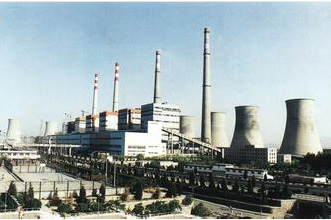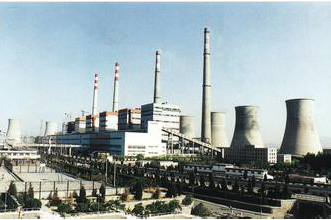Power Plants


Pressure vessels and storage tanks stand as indispensable components within the Power Plant industry, fulfilling pivotal roles across diverse facets of power generation and distribution. Below is a comprehensive exploration of their applications in this sector:
1. Boiler Systems:
At the heart of power plant operations, pressure vessels form integral components of boiler systems. These vessels are fundamental in steam generation, containing water under immense pressure. The resulting steam, crucial for driving turbines and electricity production, hinges on the reliability of these vessels to withstand extreme temperatures and pressures, ensuring the safe and efficient operation of the entire system.
2. Steam Storage:
Storage tanks assume a crucial role in the temporary storage of steam generated within power plant boilers. Beyond mere storage, these tanks regulate steam pressure and serve as a reserve to meet fluctuating power generation demands. Additionally, they act as a buffer during maintenance or shutdown periods, guaranteeing uninterrupted power supply.
3. Condensate Recovery:
Following the passage of steam through turbines, condensation occurs, yielding water suitable for reuse within the boiler system. Storage tanks are employed for the collection and storage of this condensate, which, after treatment, is recycled as feedwater. This efficient condensate recovery not only conserves water but also enhances energy efficiency within power plant operations.
4. Cooling Systems:
To manage excess heat generated during electricity production, power plants rely on cooling systems. Storage tanks may house water or other cooling fluids crucial for these systems. By ensuring a continuous supply of coolant, these tanks play a vital role in maintaining optimal operating temperatures, safeguarding equipment from overheating.
5. Fuel Storage:
Storage tanks serve as vital repositories for fuels such as oil, natural gas, or coal, essential energy sources within power plants. These tanks provide a reserve supply of fuel, ensuring seamless operation even amidst demand fluctuations. Moreover, proper fuel storage mitigates risks associated with supply disruptions, ensuring uninterrupted power generation.
6. Chemical Treatment:
Water treatment, corrosion inhibition, and pollution control necessitate the use of various chemicals within power plants. Storage tanks safely house these chemicals, dispensing them as needed to maintain water quality, protect equipment from corrosion, and ensure compliance with environmental regulations.
7. Emergency Backup:
In the face of unforeseen power outages or equipment failures, storage tanks serve as indispensable emergency backup systems. Capable of storing essential fluids such as backup fuel, coolant, or emergency water supplies, these tanks support critical operations and facilitate swift recovery processes.
At the heart of power plant operations, pressure vessels form integral components of boiler systems. These vessels are fundamental in steam generation, containing water under immense pressure. The resulting steam, crucial for driving turbines and electricity production, hinges on the reliability of these vessels to withstand extreme temperatures and pressures, ensuring the safe and efficient operation of the entire system.
2. Steam Storage:
Storage tanks assume a crucial role in the temporary storage of steam generated within power plant boilers. Beyond mere storage, these tanks regulate steam pressure and serve as a reserve to meet fluctuating power generation demands. Additionally, they act as a buffer during maintenance or shutdown periods, guaranteeing uninterrupted power supply.
3. Condensate Recovery:
Following the passage of steam through turbines, condensation occurs, yielding water suitable for reuse within the boiler system. Storage tanks are employed for the collection and storage of this condensate, which, after treatment, is recycled as feedwater. This efficient condensate recovery not only conserves water but also enhances energy efficiency within power plant operations.
4. Cooling Systems:
To manage excess heat generated during electricity production, power plants rely on cooling systems. Storage tanks may house water or other cooling fluids crucial for these systems. By ensuring a continuous supply of coolant, these tanks play a vital role in maintaining optimal operating temperatures, safeguarding equipment from overheating.
5. Fuel Storage:
Storage tanks serve as vital repositories for fuels such as oil, natural gas, or coal, essential energy sources within power plants. These tanks provide a reserve supply of fuel, ensuring seamless operation even amidst demand fluctuations. Moreover, proper fuel storage mitigates risks associated with supply disruptions, ensuring uninterrupted power generation.
6. Chemical Treatment:
Water treatment, corrosion inhibition, and pollution control necessitate the use of various chemicals within power plants. Storage tanks safely house these chemicals, dispensing them as needed to maintain water quality, protect equipment from corrosion, and ensure compliance with environmental regulations.
7. Emergency Backup:
In the face of unforeseen power outages or equipment failures, storage tanks serve as indispensable emergency backup systems. Capable of storing essential fluids such as backup fuel, coolant, or emergency water supplies, these tanks support critical operations and facilitate swift recovery processes.
